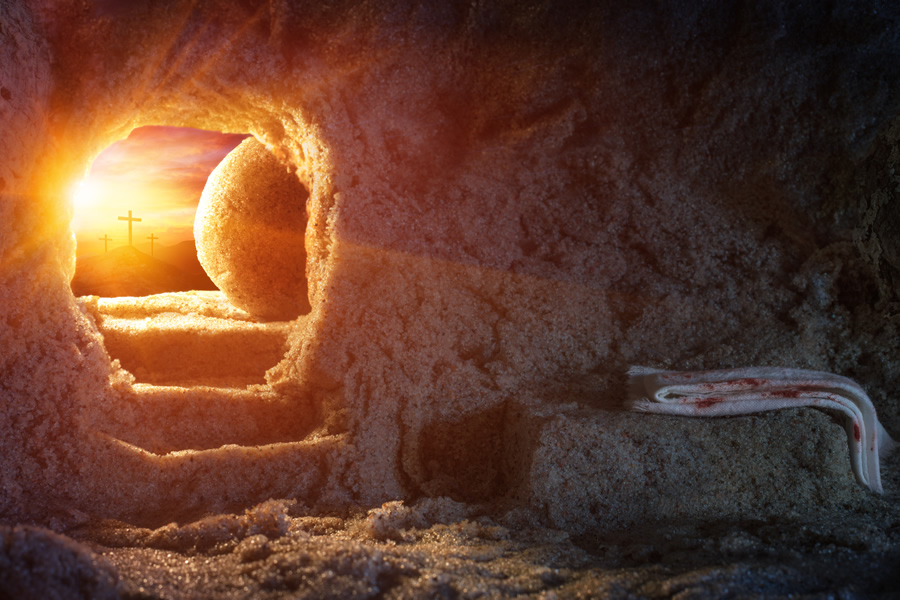
Glory Beyond Imagination!
03-31-2024Weekly ReflectionReflection from mycatholic.lifeThe Lord has truly risen! Alleluia! What a glorious day we celebrate today! Prior to the reading of Matthew’s Gospel, proclaiming the Risen Christ, there are seven Old Testament readings, each followed by a psalm, as well as a New Testament reading, another psalm and the Gospel.
READ MORE
Hosanna! To the Suffering Christ!
03-24-2024Weekly ReflectionReflection from mycatholic.lifeThroughout Jesus’ life, He traveled to Jerusalem many times. As a child, He was presented in the Temple. At age twelve, He was found teaching the teachers of the Law in the Temple. As He grew, He made regular pilgrimages to the Temple. During His temptation in the desert, the devil took Him to the pinnacle of the Temple. In the Gospels, we read of at least four different trips to the Temple during Jesus’ public ministry. However, the trip to Jerusalem that we commemorate today was unlike any other.
READ MORE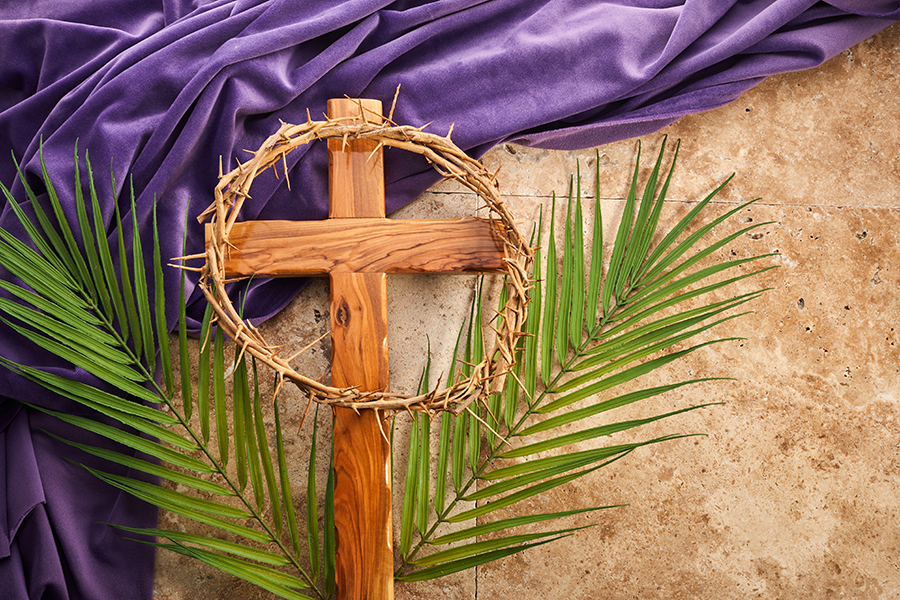
Suffering Transformed by Glory
03-17-2024Weekly ReflectionReflection from mycatholic.lifeThroughout Jesus’ life, He traveled to Jerusalem many times. As a child, He was presented in the Temple. At age twelve, He was found teaching the teachers of the Law in the Temple. As He grew, He made regular pilgrimages to the Temple. During His temptation in the desert, the devil took Him to the pinnacle of the Temple. In the Gospels, we read of at least four different trips to the Temple during Jesus’ public ministry. However, the trip to Jerusalem that we commemorate today was unlike any other.
READ MORE
4th Sunday of Lent
03-10-2024Weekly ReflectionReflection from mycatholic.lifeJesus said to Nicodemus: “Just as Moses lifted up the serpent in the desert, so must the Son of Man be lifted up, so that everyone who believes in him may have eternal life.” John 3:14–15
This quote concludes a dialogue that Jesus had with Nicodemus, a Pharisee and a member of the Sanhedrin. This is the first of three times Nicodemus is mentioned in the Gospel of John. The second time he appears is when he reminds the other members of the Sanhedrin that a man must be first heard before he is condemned. The third time was when Jesus was killed and Nicodemus brought a mixture of myrrh and aloes to prepare Jesus’ body for burial.
READ MORE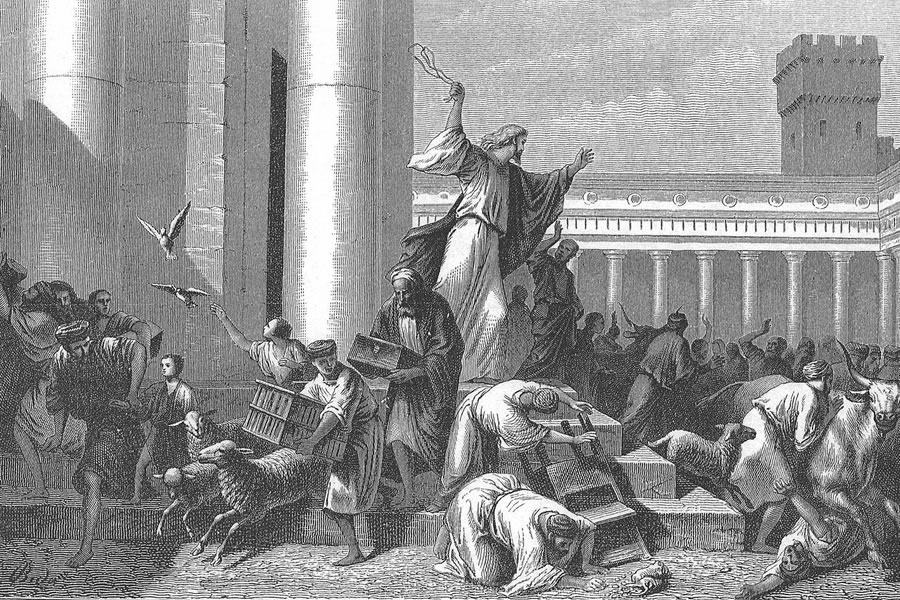
3rd Sunday of Lent
03-03-2024Weekly ReflectionReflection from mycatholic.lifeAll four Gospels speak of Jesus’ cleansing of the Temple. However, there is a difference between the way this event is portrayed in the Synoptic Gospels (Matthew, Mark and Luke) and in the way it is portrayed in John’s Gospel. Jesus was less severe in John’s version of the story, stating only that the moneychangers had turned His Father’s House into a “marketplace.”
READ MORE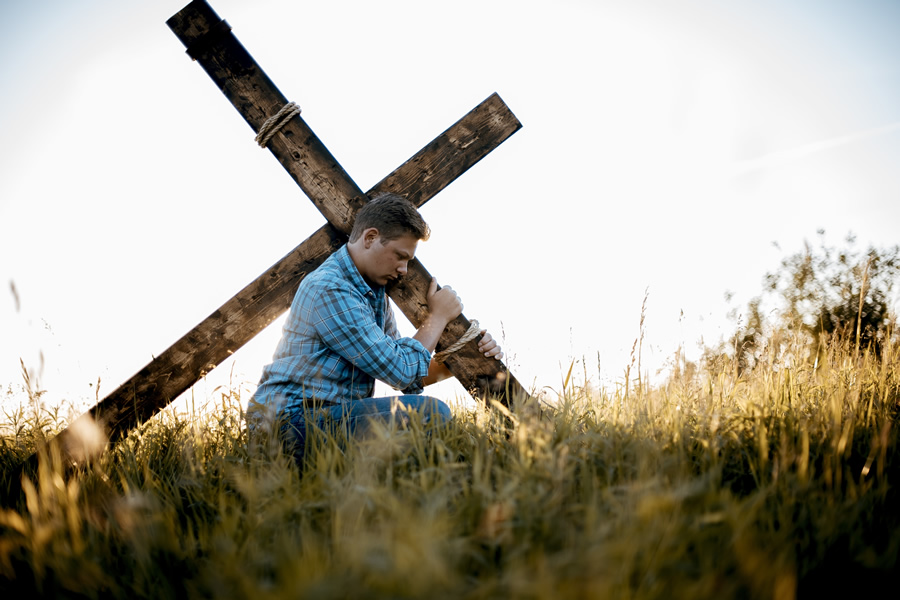
Glory Overshadowing the Cross
02-25-2024Weekly ReflectionReflection from mycatholic.lifeJust six days prior to this glorious event of the Transfiguration, Jesus spoke for the first time to His disciples about His pending crucifixion and death. He taught them that “the Son of Man must suffer greatly and be rejected by the elders, the chief priests, and the scribes, and be killed, and rise after three days” (Mark 8:31).
Recall that Peter had a difficult time accepting this teaching. Jesus went on to rebuke Peter for his refusal to accept this prophetic teaching and further explained that “Whoever wishes to come after me must deny himself, take up his cross, and follow me” (Mark 8:34).
READ MORE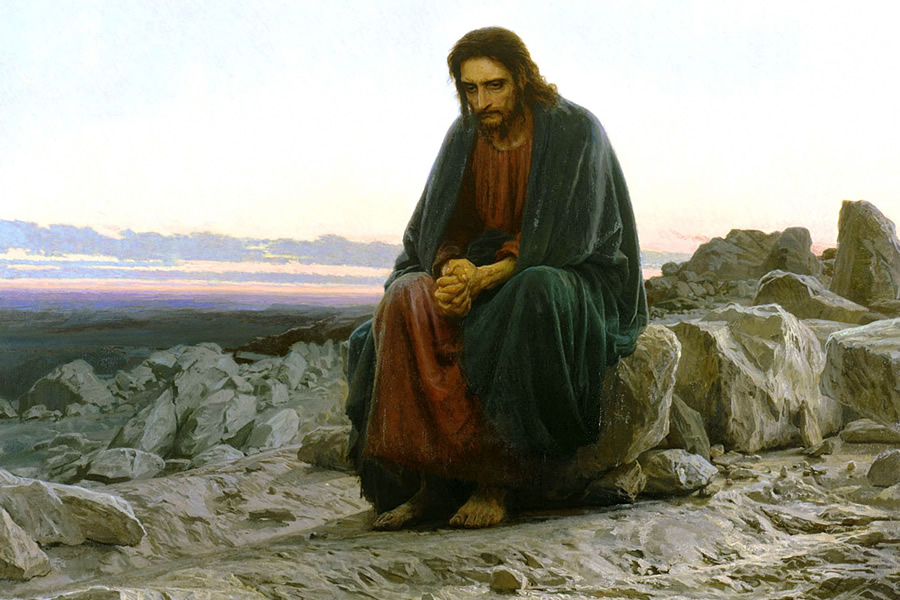
The Ministry of Angels
02-18-2024Weekly ReflectionReflection from mycatholic.lifeWhat an amazing event we reflect upon today. Jesus, the Son of God, the Second Person of the Most Holy Trinity humbled Himself in two ways in the passage quoted above. First, He allowed Himself to endure the temptations of Satan. Second, He permitted His very own creation, the good angels, to minister to Him in His human form. First of all, recall that Satan is a fallen angel. He was created by God and was created good. But the Book of Revelation (12:4) indicates that one-third of the created angels were cast out of Heaven to roam the earth.
READ MORE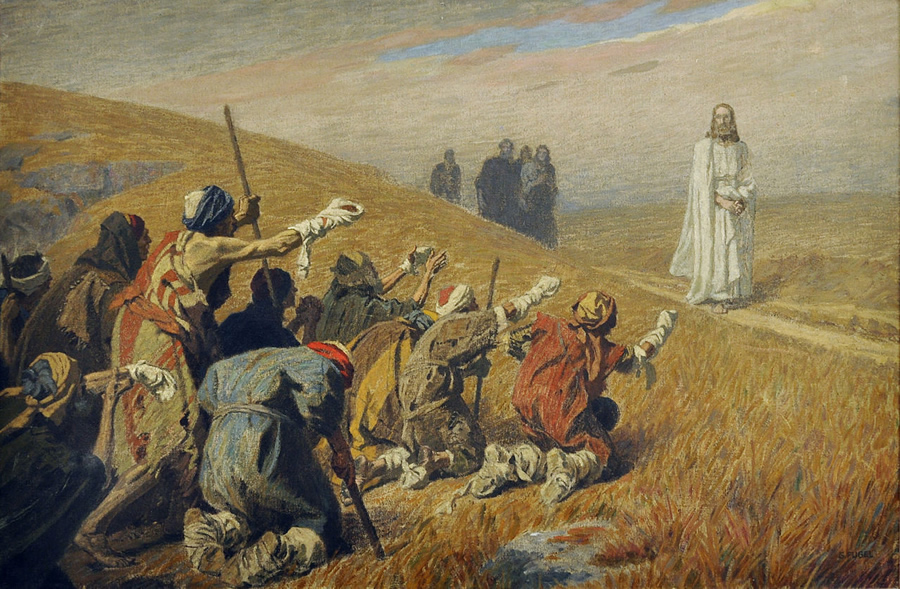
Restoration
02-11-2024Weekly ReflectionReflection from mycatholic.lifeIn the Old Testament, Leviticus 14, God gave Moses a purification rite to be used for those who were cured of leprosy. This detailed rite that spanned several days was used to reintegrate a healed leper back into society. After Jesus healed the leper in today’s Gospel passage, He ordered him to “go, show yourself to the priest and offer for your cleansing what Moses prescribed; that will be proof for them.” Thus, Jesus not only healed the man but instructed him that he was ready to be restored to the community. At that time, leprosy was a horrible disease, not only for its physical effects, but also because the leper was not permitted to be a part of the society. This was because leprosy was quite contagious. By keeping those infected separate, the disease did not spread as easily to others.
READ MORE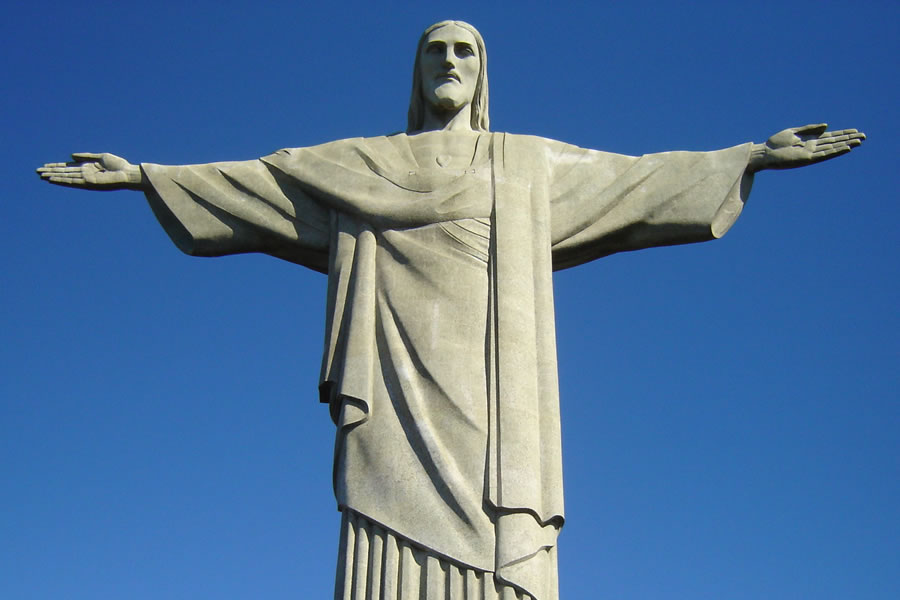
Christ and our Parish
02-04-2024Weekly ReflectionReflection from mycatholic.lifeThis weekend, we are hosting our annual Ministry Fair at the end of the Palo Verde Walkway. With an active building project and capital campaign, we often hear about how to best utilize our treasure in service to Christ and our Parish; now everyone has the opportunity to utilize, in a tangible and meaningful way, their talent in service to Christ and our Parish! Stewardship, the way we share our gifts of time, talent, and treasure, is just one way we participate in the New Evangelization!
READ MORE
The Subtleties of Grace
01-28-2024Weekly ReflectionReflection from mycatholic.lifeJesus rebuked him and said, “Quiet! Come out of him!” The unclean spirit convulsed him and with a loud cry came out of him. Mark 1:25–26
It’s interesting to note that this unclean spirit immediately knows Who Jesus is. This is because each of two opposites emphasizes the other very clearly. For example, the color black is most clearly seen when it is placed in front of something white. Or something hot is most noticeable after experiencing something very cold. And a loud noise is most jarring when someone is sitting in silence. And so it is with Jesus and evil.
READ MORE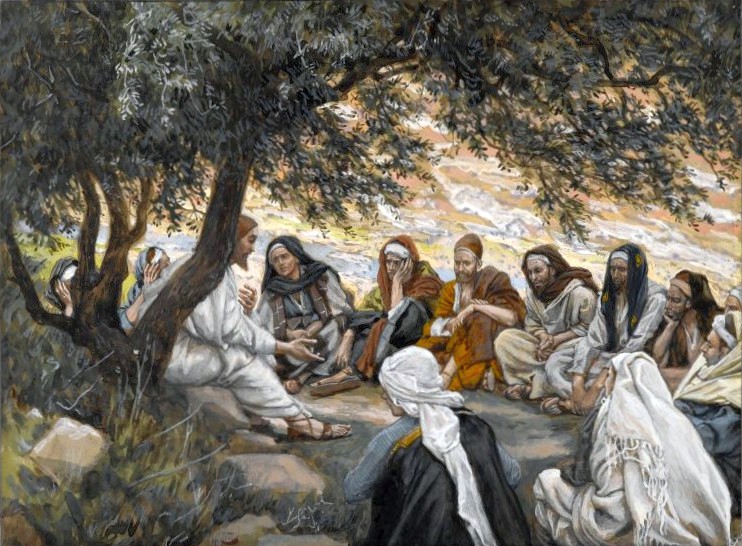
True Fillment
01-21-2024Weekly ReflectionReflection from mycatholic.lifeJesus begins His public ministry immediately after being tempted by the devil while in the desert for forty days. As He begins His ministry, He declares: “This is the time of fulfillment.” First, the beginning of Jesus’ public ministry was, historically speaking, the “time of fulfillment,” in that the new era of the Gospel and grace had just begun. But the “time of fulfillment” of which Jesus speaks also refers to each and every time that we hear the Gospel and respond. We do this by sincerely repenting of our sins and by becoming a fuller member of God’s Kingdom.
READ MORE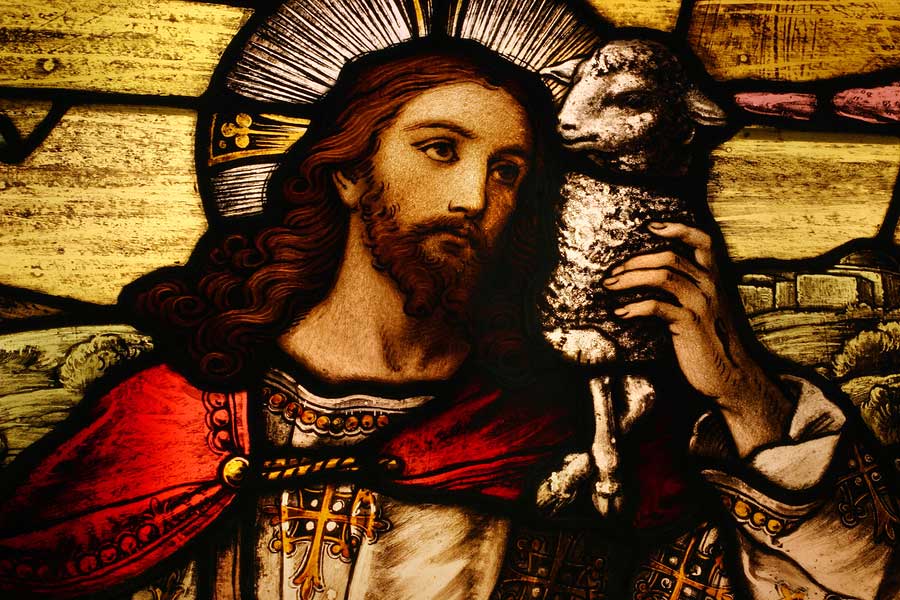
Behold, The Lamb of God
01-14-2024Weekly ReflectionReflection from mycatholic.lifeAndrew, the brother of Simon Peter, was one of the two who heard John and followed Jesus. He first found his own brother Simon and told him, “We have found the Messiah” —which is translated Christ —. Then he brought him to Jesus. John 1:40–42 Andrew was a follower of Saint John the Baptist until John directed him to Jesus. One day John saw Jesus walk by and pointed to Jesus, telling Andrew and another disciple, “Behold, the Lamb of God.” The two disciples followed after Jesus.
READ MORE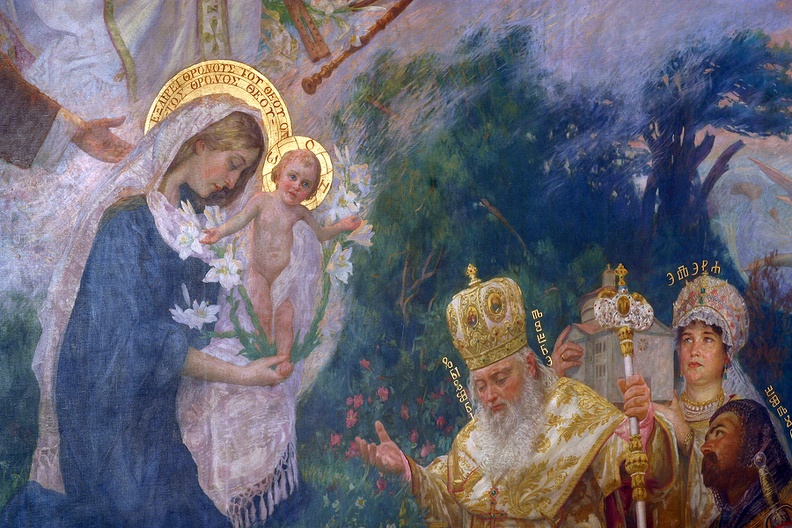
A Manifestation to the World
01-07-2024Weekly ReflectionReflection from mycatholic.lifeWhen Jesus was born in Bethlehem of Judea, in the days of King Herod, behold, magi from the east arrived in Jerusalem, saying, “Where is the newborn king of the Jews? We saw his star at its rising and have come to do him homage.”Matthew 2:1–2
The Magi were most likely from Persia, modern-day Iran. They were men who regularly engaged in a study of the stars. They were not Jewish but were most likely aware of the popular belief of the Jewish people that a king would be born who would save them.
READ MORE